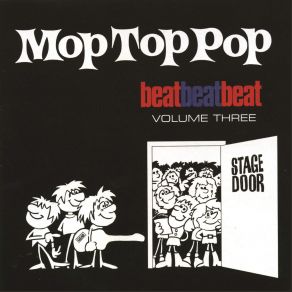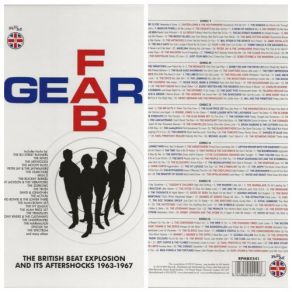The Migil 5
Wikimp3 information about the music of The Migil 5. On our website we have 1 albums and 8 collections of artist The Migil 5. You can find useful information and download songs of this artist. We also know that The Migil 5 represents Rock genres.
Biography
[Edit]The early histories of ska and bluebeat often mention Millie Small as a pioneering artist for her 1964 multi-million seller "My Boy Lollipop." However, there was another breakthrough record released in that genre in England that year, called "Mockin' Bird Hill." It came out the same week as Small's single, in fact, and while it never became as huge a hit as her record, it was the first bluebeat record by a white band to hit the English Top Ten.
And what a white band; there was never a more unlikely looking quintet of rock & rollers, much less bluebeat or ska players, than the Migil Five. They were all in their mid- to late '20s and looked a decade older than most of their rock & roll rivals. What's more, they all seemed more like jazz musicians (which they really were) in the way they played and conducted themselves.
The group originally came together as a band backing blind singer Lennie Peters for performances in pubs in the north of London in 1960. Lenny Blanche played bass and Gil Lucas was at the piano. According to Roger Dopson, the drum spot was filled by whomever was available and good enough, including a promising jazz player named Charlie Watts, who was the nephew of Lennie Peters. Mike Felix, who had considerable experience in jazz and R&B, eventually became their permanent drummer.
The group became known as Lennie Peters & the Le Migils, the latter name derived from the bandmembers: "Le" from Blanche's first name, "Mi" from Felix's given name, and "gil" from Gil Lucas. The quartet was very successful in its club dates, but Lennie Peters left to take a solo gig and the remaining members decided to reconfigure the group around Mike Felix's vocals. They added guitarist and veteran of the London club scene Red Lambert to their lineup and rechristened themselves the Migil Four. The new group became popular on the cabaret circuit and at holiday camps with their mix of jazz, R&B, and pop sounds. Fate played a hand at one gig when they were spotted by Kenny Ball, one of the top trad jazz bandleaders in England. Ball saw the quartet, liked their sound enough to jam with them on-stage, and soon became their informal musical mentor.
Ball recommended the group to his label, Pye Records, and they were offered a contract. The quartet's first record was "Maybe," a blues-style number that failed to chart. By the time the single's fate had been determined, however, the Migil Four had transformed themselves into the Migil Five with the addition of tenor sax player Alan "Earl" Watson, a former member of Georgie Fame's band the Blue Flames. Watson added just the edge they needed to impress the younger audiences at their shows.
The Migil Five were an improbable outfit on the early-'60s London rock music scene. Five guys who were already in their late '20s and skilled in jazz, R&B, blues, folk, and pop, Lambert was balding and sported a beard and the others looked more like veterans of the '50s trad jazz scene. Watson brought a harder R&B sound that made them more appealing to teenagers, but they all looked more like music teachers than rock & rollers. In 1963, the group's fortunes took a sudden leap when they landed a residency at The Tottenham Royal, succeeding the Dave Clark Five. This engagement proved essential to their future, giving the group a chance to play regularly before younger audiences and hone their sound and act; they soon discovered that the kids especially responded to the group's R&B and bluebeat style numbers. For their second single, they decided to try a bluebeat-style rendition of a Les Paul-Mary Ford hit called "Mockin' Bird Hill." At the time, bluebeat — which would later be rechristened ska — was starting to catch on among younger listeners and the record came out in the spring of 1964, just as interest in the music was expanding beyond the West Indian community. It was snapped up by their Tottenham fans, got a favorable reception on music showcases like Juke Box Jury, and then the BBC's Saturday Club picked it up. "Mockin' Bird Hill" entered the charts late that spring, rising into the Top Ten. Although it was overshadowed internationally by Millie Small's "My Boy Lollipop," the Migil Five's single spent three months on the English charts, sold well in the West Indian community, and even became a popular single even in black clubs.
Suddenly, the quintet went from club gigs to bookings on Ready Steady Go and other televised music showcases, performing alongside the likes of Dusty Springfield and Carl Perkins. They also had their own weekly spot with Associated British television. Sandwiched in between the club and cabaret engagements booked months ahead of the single's release were tours with bands like the Animals and the Nashville Teens. The Migil Five even made it into a pair of music featurettes, Swinging U.K. and U.K. Swings Again (later assembled into Go Go Big Beat) doing "Mockin' Bird Hill" and "Long Tall Sally" alongside Millie Small, the Hollies, the Merseybeats, and the Animals. They looked a little stiff in that company, but they also looked very musicianly, which is what they were. The whole experience was a lark for five guys who only wanted to play music and preferably make a living at it.
A second single, "Near You," was released in June of 1964 and soon joined its predecessor on the charts; a Mockin' Bird Hill LP duly followed. The song lineup included some of the songs they enjoyed best from their live repertory, among them "Your Cheatin' Heart" and "Long Tall Sally," and a handful of bluebeat-style pieces.
The Migil Five's momentum slackened after the release of the LP in mid-1964, however. Their third single, "Boys and Girls," was ignored by the public and the charts and Pye tried again in the fall of 1964 with an EP entitled "Meet the Migil Five," but it didn't chart either. Their days of selling large numbers of records were over by 1965, though the group remained busy. They'd never given up the cabaret performances with which they'd started, however, and were the regular house band on the radio show Easy Beat, where they played behind the likes of Sonny & Cher and other guests. The quintet also had huge success in Ireland, where "Mockin' Bird Hill" had topped the charts and several of the follow-ups had sold extremely well for much of 1965.
They did continue to try and sell records, moving into ballads and R&B, to no avail. And they also made the acquaintance of an up-and-coming group called the Bonzo Dog Doo-Dah Band, better-known later as the Bonzo Dog Band, that Felix and his manager represented in their early days. Mike Felix left the lineup in 1966 and Watson took over the singing. They cut one single with the new lineup on Pye before being dropped and played out their string in cabarets and ballrooms, passing through EMI's Columbia label for one single and the Jayboy label ("If I Had My Way") for another before breaking up in late 1968.
Mike Felix later had a second career as a comedian in the 1970s and apparently continued in that capacity, and as an after-dinner speaker, at the close of the 1990s. The others — apart from Gil Lucas, who passed on in the 1990s — have moved on to lives and careers outside of music. For many years, the Migil Five were most visible in America on the Rhino Video release of Go Go Big Beat in the mid-'80s. "Mockin' Bird Hill" was occasionally included on '60s British hits compilations and in 1991, a compact disc reissue of their Pye album appeared with bonus tracks from their days as the Migil Four. In 1998, Sequel Records released Mockin' Bird Hill, a 30-song compilation of the group's Pye recordings, right up through their post-Mike Felix effort, "Pencil and Paper."
Title: Mockin' Bird Hill (The Pye Anthology)
Artist: The Migil Five, The Migil 5
Collections
Title: Mop Top Pop: Beat Beat Beat, Vol. 3
Genre: Rock
Title: Ripples Volume 4 ~ Uptown Girls And Big City Boys
Genre: Psychedelic
Title: Jukebox Gold: Ultimate Collection (CD1)
Genre: Hip Hop/R&B, Rock, Punk Rock, Pop
Title: Ultimate Jukebox Gold 5CD 2020 (CD1)
Genre: Hip Hop/R&B, Soul, Rock, Rock & Roll, Punk, Outlaw Country, Rockabilly, Pop Rock
Title: Greatest Ever Jukebox Legends 4CD (CD4)
Genre: Hip Hop/R&B, Soul, Blues, Gospel, Rock & Roll, World Music, Country, Rockabilly, Classical, Folk









